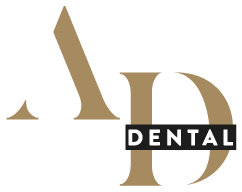How many teeth do adults have? A Complete Guide to Adult Teeth
When we talk about taking care of our teeth, various questions naturally come to mind.
We wonder how often we should brush our teeth, which toothpaste is best, and the correct method for flossing. But among these common queries, one fundamental question often goes unnoticed: just how many teeth do adults have?
This might sound like a simple question, but the answer is actually more intricate than it appears.
This blog will help you find out how many teeth humans have and how many wisdom teeth.

Baby teeth vs adult teeth
Before we dive into the exact count of adult teeth, it’s essential to understand the difference between adult teeth and baby teeth.
Children typically have 20 primary teeth, commonly referred to as baby teeth.
These teeth begin to emerge around the age of six months and continue to fall out as children grow, making way for adult teeth.
How many teeth do humans have?
The human mouth is a marvel of biological engineering, and it houses a precise number of teeth, typically 32, in a well-organised arrangement.
These teeth serve a variety of functions, allowing us to chew, speak, and smile with ease. It’s worth noting that while 32 teeth are the norm, some people may have fewer due to factors like congenital absence or dental issues that necessitate removal. On the other hand, some individuals may have extra teeth, referred to as supernumerary teeth.
The standard count of 32 teeth includes eight incisors, four canines, eight premolars, and twelve molars. These teeth come together harmoniously to facilitate the complex process of mastication and digestion.
Adult teeth are organised into two sets: the upper (maxillary) and lower (mandibular) arches. These arches contain a mixture of the four tooth types, strategically positioned to facilitate efficient chewing and biting. The arrangement of teeth ensures proper occlusion, allowing for effective mastication.
The categories are as follows:
Incisors (8)
Incisors are the front teeth, and adults have a total of eight of them – four on the top and four on the bottom. These teeth are crucial for cutting and biting into food.
Canines (4)
Canines, often referred to as cuspids, are the pointed teeth located at the corners of your mouth. Adults have four of these – two on the top and two on the bottom. Canines are essential for tearing food.
Premolars (8)
Premolars, also known as bicuspids, come next in the count. Adults have eight premolars – four on the top and four on the bottom. These teeth have a flat surface, which makes them perfect for grinding and tearing food.
Molars (12)
Molars, which are the teeth at the back of your mouth, are the largest teeth adults have, numbering 12 in total – four on the upper jaw and four on the lower. These teeth have a flat, wide surface, and their primary role is to grind and crush food to aid in digestion.

Special teeth: wisdom teeth
The 12 molars also include four wisdom teeth (also known as third molars). However, not everyone develops wisdom teeth, and they may need to be removed due to various dental issues.
They are located at the back of the mouth, usually two on the top and two on the bottom. Wisdom teeth typically emerge much later than other teeth, usually between the ages of 17 and 25. They’re often referred to as “wisdom teeth” because they emerge at an age when a person is presumed to be wiser than when their other teeth came in during childhood.
However, the arrival of wisdom teeth is not always a cause for celebration. Many people experience discomfort and pain as their wisdom teeth gradually grow. In fact, it’s quite common for these teeth to become impacted, meaning they don’t have enough space to emerge properly. This impaction can lead to various dental issues, including pain, infection, and damage to adjacent teeth.
How many wisdom teeth do we have?
While the number of teeth an adult human should have is typically 32, the count of wisdom teeth can vary. Some people may have four, while others may have fewer or none at all. Monitoring the growth of wisdom teeth and addressing any potential problems is crucial to maintaining good oral health and ensuring those 32 teeth serve you well throughout your life.
Do you want to read more on this topic? Find our blog page on wisdom teeth here!
The importance of oral care
It’s crucial to have a grasp of how many teeth adults typically have and the various types they come in to ensure proper oral health. Regular visits to the dentist, thorough tooth brushing, flossing, and a nutritious diet are all key factors in maintaining the health of your teeth.
Conclusion
In conclusion, adults typically have 32 teeth, including incisors, canines, premolars, molars and wisdom teeth.
These teeth are designed for various functions, such as cutting, tearing, grinding, and crushing food. Maintaining oral health is crucial to ensure these teeth serve you well throughout your life. So, the next time you wonder how many teeth adults have, you can confidently answer: “32, if they have wisdom teeth!”.
However, on average, people only have 28 teeth.
FAQs
Adults typically have 12 molars, six on the top and six on the bottom. They are essential for breaking down tough or fibrous foods, such as vegetables and meats.
While 32 is the standard number of teeth for most adults, some individuals may have extra teeth, a condition known as supernumerary teeth. These additional teeth can appear in various parts of the mouth and may require dental intervention if they lead to alignment or functional problems.
When wisdom teeth become impacted, they can lead to various dental issues, including pain, infection, and potential damage to neighbouring teeth. In some cases, they can cause cysts or tumours. Hence, it’s crucial to address impacted wisdom teeth through extraction to prevent these complications.
Yes, certain congenital conditions can result in missing or extra teeth. One such condition is hypodontia, which leads to the absence of one or more teeth. Hyperdontia, on the other hand, causes the development of more teeth than usual. Both conditions are typically addressed by a dentist or orthodontist.

